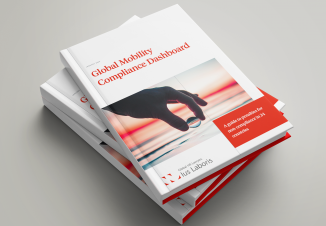
The ESG landscape is continuously evolving and it can be difficult to keep up with the many developments occurring at home and overseas. Below, we consider some of the key ESG-related issues that look set to shape the agenda of corporate Australia over the coming year.
In the coming months, the Federal Government is due to release details about its sustainable finance strategy for consultation. Already foreshadowed are:
The Government has also established dedicated bodies to ensure Australia’s transition to a low carbon economy is inclusive of workers and communities. These include:
Policy makers around the world are increasingly recognising the value of nature to a sustainable future, as well as its importance to human wellbeing. In the past year, the Australian Government has signed up to the Global Biodiversity Framework and released its Nature Positive Plan (NPP). Importantly, the NPP includes the development of National Environmental Standards and a National Nature Repair Market. Once implemented, these initiatives will reform Australia’s environmental protection regime to achieve faster and more efficient decision-making on project approvals and environmental assessments, while improving the protection of Australia’s natural environment by legislating clearer environmental standards, improving conservation planning, developing regional plans for sustainable development and encouraging investment in long-term nature repair projects.
Many businesses in Australia are preparing for the release of the final framework for the Taskforce on Nature-related Financial Disclosures (TNFD) in September. While reporting under the TNFD framework will be voluntary, businesses who are perceived to have significant dependencies (and impacts) on nature are likely to face stakeholder expectations to report against the TNFD, as has been the case in relation to climate-related reporting. However, the inherent complexities associated with reporting under the TNFD (when contrasted with climate-related reporting, for example) means implementing an accurate, reliable and consistent nature-related disclosure regime will be challenging for many organisations. Businesses seeking to be early adopters of the new reporting framework will need a robust compliance program and strong governance and oversight to mitigate the risks associated with voluntary disclosures.
Greenwashing is an enforcement priority for both the Australian Securities and Investments Commission (ASIC) and the Australian Competition and Consumer Commission (ACCC). To date, ASIC has issued 11 infringement notices targeting greenwashing. Between March and August 2023 it commenced three civil penalty proceedings – two against retail superannuation funds and one against a global investment management company – including for representations about the application of ethical exclusions. ASIC received an additional AUD 4.3 million in funding for 2023-2024 to continue its greenwashing surveillance and enforcement work. It has plans to increase surveillance of the superannuation industry and wholesale green bond market.
The ACCC has announced that it will investigate several organisations for potential greenwashing in response to a greenwashing internet sweep of 247 businesses. The ACCC found that 57% of these businesses had made ‘concerning claims about their environmental credentials’. Key concerns identified included vague, unqualified and aspirational claims, a lack of substantiating information and the use of absolute claims and comparisons.
Both regulators have issued guidance on avoiding greenwashing:
While recognising the potential chilling effect that increased enforcement activity might have on publicly stated ESG commitments or policies, ASIC’s Chairman has cautioned against organisations keeping quiet on those commitments (known as ‘greenhushing’), characterising greenhushing as another form of greenwashing.
In May this year, the Federal Government released the report on the statutory review of the federal Modern Slavery Act 2018 (Cth) (Modern Slavery Act). The Modern Slavery Act currently requires entities with AUD 100 million or more in annual consolidated revenue to prepare a report each year that identifies the risks of modern slavery in their operations and supply chains, and outline the actions taken to address those risks.
The report made 30 recommendations to improve and strengthen the Modern Slavery Act. Key recommendations include introducing penalties for specific non-compliance, a requirement that entities implement a due diligence system to identify and assess modern slavery risks and lowering the threshold for reporting entities to AUD 50 million.
While the Federal Government is yet to indicate whether it will adopt any, or all, of the recommendations, the introduction of penalties was an election commitment, and funding for the appointment of an Anti-Slavery Commissioner was included in the May Federal Budget.
In Australia, the recognition of indigenous rights and demands for the protection of cultural heritage has increased expectations that project proponents will secure free, prior and informed consent (FPIC) of First Nations people for project developments on their traditional lands. Although Australian law does not currently require project proponents to achieve FPIC in accordance with international human rights standards, a growing range of stakeholders, including investors and financial institutions, are looking for evidence that FPIC has been achieved.
The Federal Senate is conducting an inquiry into the application of the UN Declaration on the Rights of Indigenous People (UNDRIP). During public hearings on 10 March 2023, First Nations stakeholders called for the implementation of FPIC in Australian law as a necessary part of achieving the right to self-determination of First Nations people.
Whether or not this reform occurs, a failure to ensure FPIC has been obtained has the potential to result in significant reputational, operational and possibly legal risks for project proponents and their financiers, whereas a proactive approach to FPIC is more likely to help businesses deliver a project sustainably and meet the expectations of relevant stakeholders.
There is also growing pressure on organisations to prioritise the wellbeing, safety, and ongoing education and training of their workers. A shift from reactive management of issues based on retrospective indicators is being replaced by proactive duties to identify and address cultural drivers of risk. For example, employers now have a positive duty to take reasonable and proportionate measures to prevent sex discrimination, sexual harassment, victimisation and ‘hostile workplace environments’, which requires businesses to assess the systemic and cultural drivers of inequality in their workplace. As a result, diversity and inclusion programs are an important aspect of cultural-based risk assessments and minimisation measures.
Transparency is increasingly being used as a mechanism to improve confidence in internal reporting systems and continuous improvement of related risk control measures. For example, the National Sex Discrimination Commissioner made several recommendations directed to public disclosure of the outcomes of sexual harassment complaints in the Respect@Work report. From 2024, the Workplace Gender Equality Agency is required to publish the gender pay gap information of individual organisations with over 100 employees (where previously it had reported only aggregated industry gender pay gap data).
Public interest advocacy focused on holding organisations accountable for their public commitments to human rights and management of human rights risks is increasing.
As indicators of an organisation’s diversity and inclusion performance become the subject of public reporting requirements we expect increased scrutiny by both internal and external stakeholders. Worse-performing organisations are likely to face pressure to improve key workplace diversity and inclusion indicators and may see litigation used as a tool to influence and ultimately improve an organisation’s diversity and inclusion performance. This trend is already being seen in the United States. For example, in 2021 shareholders of a social media company commenced a derivative action against the company’s board alleging that it breached a statutory prohibition on material misrepresentations when it said in proxy statements that the company was ‘committed’ to diversity and inclusion. While the shareholders were unsuccessful, claims like these can expose an organisation to reputational harm.
Organisations that do not have a reasonable basis for making ‘social’ claims are also at risk of enforcement action. ASIC’s recent greenwashing interventions report shows ASIC issued a corrective notice to the responsible entity of a managed fund that had used vague and insufficiently explained terms such as ‘social diversity’ in its Product Disclosure Statement (PDS) when describing its investment approach. Social claims are expected to become a greater focus for Australian regulators as broader sustainability disclosures and social commitments become more commonplace in the private sector.
Australian organisations are the subject of strategic public interest advocacy, with Australia recording the most climate change litigation per capita in the world, according to a recent United Nations report. Strategic litigants are driven by the desire to influence and shift corporate strategy and the management of ESG risks. For example, climate activist organisations and public interest law firms are targeting corporate greenwashing and requesting ASIC, ACCC and/or Australia’s Advertising Standards Board to investigate alleged greenwashing to put pressure on organisations to take more ambitious climate action.
There have also been a number of cases filed on both human rights (particularly First Nations’ rights) and environmental grounds:
These cases illustrate the significant legal, reputational and commercial risks that can arise in relation to human rights issues. To mitigate these risks, it is critical that organisations understand the human rights impact of their operations (by undertaking human rights due diligence) and implement strategies for effective engagement with communities and other stakeholders who may be affected.
A Bill has recently been reintroduced, which would strengthen Australia’s foreign bribery laws. The Bill would introduce a corporate criminal offence of ‘failure to prevent bribery’, which would be made subject to an ‘adequate procedures’ defence. This would be an absolute liability offence, meaning that there would be no requirement to prove fault and no defence of honest and reasonable mistake of fact. As such, Australian businesses will be incentivised to proactively take steps to examine their operations, identify foreign bribery risks, and put in place policies and procedures from board-level down to build a culture that seeks to proactively prevent this behaviour.
The High Court of Australia has also recently clarified that the maximum monetary penalty for a company which bribes, or conspires to bribe, a foreign official should not include a deduction for costs incurred in performing the contract. This decision demonstrates that significant penalties may apply to organisations found to have committed foreign bribery offence.
The ESG landscape is undergoing significant and rapid change, driven by regulatory developments, strategic litigation and stakeholder expectations. In this environment, organisations must proactively consider their ESG risks and opportunities.
In particular, organisations should:
Find out how ESG issues are shaping policy and practice in other areas of employment law


